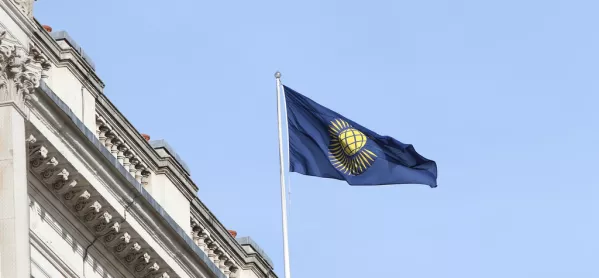The government has launched a resource designed to help teachers explain the “importance of the Commonwealth” to their pupils.
The pack, intended for teachers working with 11- to 14-year-olds, contains information on the Commonwealth and its values, as well as a range of classroom activities covering topics such as citizenship, geography, general studies and history.
The teaching resource was launched today by school standards minister Nick Gibb. “By working collaboratively with other countries we can create ever more opportunities for young people and help build a Britain that is fit for the future,” he said.
The pack has been created ahead of the Commonwealth Heads of Government meeting in April, when up to 52 leaders from its countries will convene in London.
Commonwealth matters
At the start of the pack, under a heading of “why does it matter to your class?”, the guide says: “with over 2.4 billion people, the Commonwealth is home to one-third of the world’s population, 60 per cent of which are under the age of 30 and, as such, the summit’s priorities will have a strong youth focus. A unique institution built on deep partnerships with a diverse membership, this global network can help meet some of the major challenges we face both today and in the future.
“The outcomes of the summit will affect Britain’s young people and the decisions made will shape the direction of the Commonwealth in the future.”
The pack includes a number of classroom activities, including one called “fun with flags”, where pupils are asked to fill in the blank spaces under flag with the corresponding country.
Another activity involves pupils matching the Commonwealth’s values and principles with the correct definitions, before designing their own flag that “embodies these values”.
Great women
In a third activity related to “great women of the Commonwealth”, students are encouraged to choose from a list of eight inspirational women from Commonwealth countries - and then create a Facebook profile for their chosen woman, including a profile picture, suggested friends, and suggested status updates as though written by the woman.
The list of women includes suffragette leader Emmeline Pankhurst, Nobel prize winner Malala Yousafzai and author Margaret Atwood.
The government has previously emphasised Britain’s membership of the Commonwealth as an important part of its post-Brexit future.
In her landmark speech on Brexit at Lancaster House last January, the prime minister Theresa May said: “Instinctively, we want to travel to, study in, trade with countries not just in Europe but beyond the borders of our continent.
“Even now as we prepare to leave the EU, we are planning for the next biennial Commonwealth Heads of Government meeting in 2018 - a reminder of our unique and proud global relationships.”
Want to keep up with the latest education news and opinion? Follow Tes on Twitter and Instagram, and like Tes on Facebook




